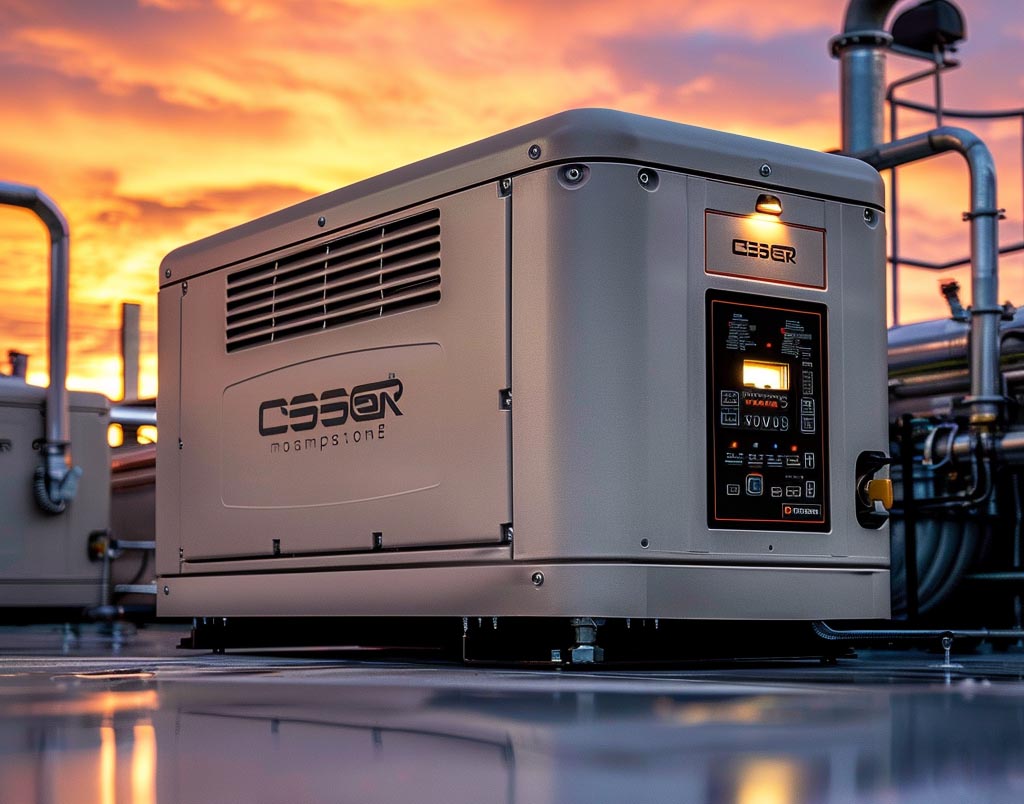In today’s fast-paced business environment, power outages can spell disaster for commercial operations. A reliable backup generator ensures continuity, protects sensitive equipment, and maintains customer satisfaction. But how do you choose the right generator for your business? This comprehensive buying guide will help you navigate the key factors to consider.
1. Determine Your Power Needs
Assess Your Load Requirements: Start by calculating your power needs. Identify critical systems and equipment that must remain operational during a power outage. This includes lighting, HVAC systems, computers, security systems, and any specialized machinery.
Consider Peak Load: Calculate the peak load to ensure the generator can handle the highest power demand your business might experience. Consult with an electrician to determine your specific load requirements accurately.
2. Choose the Right Type of Generator
Standby Generators: Ideal for businesses requiring a seamless transition during power outages, standby generators automatically kick in when the power goes out. They are permanently installed and connected to your electrical system, providing reliable, continuous power.
Portable Generators: Suitable for businesses with lower power needs or temporary locations, portable generators offer flexibility and ease of use. However, they require manual setup and connection during outages.
Inverter Generators: Inverter generators provide clean, stable power suitable for sensitive electronics. They are quieter and more fuel-efficient but typically offer lower power output, making them suitable for small businesses or specific applications.
3. Fuel Type Considerations
Diesel: Diesel generators are known for their durability and efficiency, making them a popular choice for commercial applications. They have a longer lifespan and lower operating costs compared to other fuel types.
Natural Gas: Natural gas generators are environmentally friendly and offer a continuous fuel supply, as they are connected to the gas line. However, they may require higher upfront installation costs.
Propane: Propane generators are clean-burning and have a longer shelf life than gasoline. They are a good choice for businesses that require a backup generator but do not have access to natural gas.
4. Evaluate Features and Specifications
Automatic Transfer Switch (ATS): An ATS ensures a seamless transition to generator power by automatically switching when an outage occurs. This is crucial for maintaining operations without manual intervention.
Power Output and Capacity: Ensure the generator’s power output matches your business needs. Look for generators with a capacity slightly higher than your peak load to accommodate future growth.
Noise Level: Consider the generator’s noise level, especially if it will be installed near offices or residential areas. Inverter generators and models with soundproof enclosures offer quieter operation.
Remote Monitoring: Advanced generators offer remote monitoring and control, allowing you to manage and monitor the system from anywhere. This feature enhances convenience and ensures timely maintenance.
5. Plan for Installation and Maintenance
Professional Installation: Hire a licensed electrician for proper installation, ensuring the generator is safely connected to your electrical system. Professional installation also ensures compliance with local codes and regulations.
Regular Maintenance: Regular maintenance is crucial for optimal performance and longevity. Schedule periodic inspections, oil changes, and load testing to keep the generator in top condition. Many manufacturers offer maintenance plans to simplify this process.
6. Budget and Financing
Initial Costs: Consider the generator’s purchase price, installation costs, and any additional features you may need. While standby generators have higher upfront costs, they offer long-term reliability.
Operating Costs: Factor in fuel costs, maintenance expenses, and potential repairs. Diesel and natural gas generators typically have lower operating costs compared to gasoline or propane models.
Financing Options: Explore financing options, such as leasing or loan programs, to manage the initial investment. Many suppliers offer financing plans tailored to commercial customers.
Conclusion
Investing in a commercial generator is a strategic decision that safeguards your business against power outages, ensuring continuous operations and protecting your assets. By carefully evaluating your power needs, choosing the right generator type and fuel, and considering essential features, you can make an informed decision that meets your business requirements.
At Eric Gandler Development Electric, we specialize in providing tailored solutions for your commercial power needs. Contact us today to learn more about our generator installation and maintenance services, and ensure your business stays powered, no matter what.


